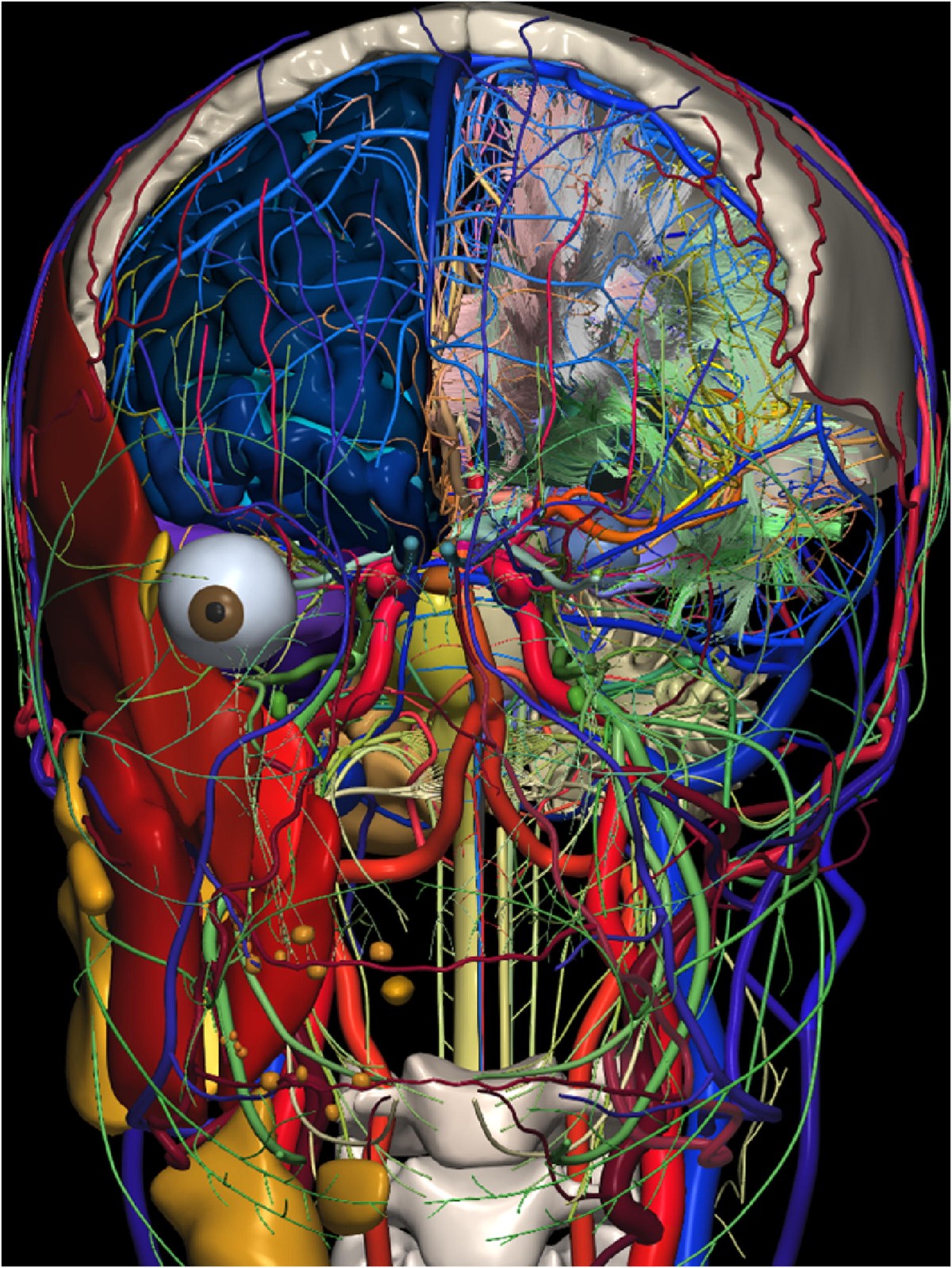Welcome to the forefront of neuroscience and education at the Learning and the Brain Conference 2025! As we delve into the dynamic relationship between learning and the brain, this conference serves as a beacon for researchers, educators, and all those passionate about maximizing human potential. The exciting sessions and discussions at the conference will explore groundbreaking insights into how the brain processes information, retains knowledge, and embraces creativity. Join us for a transformative experience where the latest research and practical applications converge to shape the future of learning. Get ready to unlock the mysteries of the mind and unleash the power of learning like never before!
Introduction to Learning and the Brain Conference 2025
The Learning and the Brain Conference 2025 is a groundbreaking event that brings together leading experts, researchers, educators, and professionals from around the world to explore the latest advancements and insights at the intersection of neuroscience, psychology, and education. This conference serves as a platform for attendees to delve into cutting-edge research, innovative teaching strategies, and practical applications aimed at optimizing learning processes and unlocking the full potential of the brain.
Key Highlights of the Conference
At the Learning and the Brain Conference 2025, attendees can expect:
- Engaging keynote presentations by renowned neuroscientists and educators
- Interactive panel discussions on the future of education and cognitive development
- Hands-on workshops demonstrating effective teaching methods based on brain science
Transformative Insights and Strategies
Participants will gain valuable insights on neuroplasticity, memory retention, attention span, and emotional intelligence, among other crucial topics. The conference aims to equip educators and learners with evidence-based strategies and tools to enhance learning outcomes, promote neurodiversity, and foster a deeper understanding of the brain and its capabilities.

The Importance of Continuous Learning
Continuous learning plays a crucial role in professional and personal growth, especially in the dynamic landscape of the learning and the brain conference 2025. Embracing a mindset of lifelong learning allows individuals to stay relevant, adapt to changes, and unlock their full potential.
Enhanced Skill Development
Constantly acquiring new knowledge and skills boosts cognitive abilities and enhances problem-solving capabilities.
Adaptability to Change
Continual learning enables individuals to embrace change with resilience and flexibility, essential qualities in today’s rapidly evolving work environment.

Exploring the Latest Research in Neuroeducation
Neuroeducation is a rapidly evolving field that integrates neuroscience principles with educational practices to enhance learning outcomes. At the Learning and the Brain Conference 2025, researchers unveiled groundbreaking studies that shed light on how the brain processes information and how educators can leverage this knowledge to optimize teaching strategies.
Impact of Neuroplasticity on Learning
Recent studies have emphasized the role of neuroplasticity in shaping our ability to learn and adapt. This dynamic process allows the brain to rewire itself based on experiences and new information, influencing our cognitive functions.
Effective Strategies for Memory Retention
Research presented at the conference highlighted innovative techniques for improving memory retention among students. By incorporating multisensory learning activities and spaced repetition techniques, educators can enhance long-term memory recall.
- Utilizing mnemonic devices
- Implementing interactive learning exercises
- Encouraging regular review sessions

Keynote Speakers and Sessions Overview
At the “Learning and the Brain Conference 2025,” participants can expect an exceptional lineup of keynote speakers who are leading experts in the fields of education, neuroscience, and cognitive psychology. These speakers will delve into the latest research and trends shaping the intersection of learning and brain development.
Keynote Speakers
Among the keynote speakers at the conference are renowned educators like Dr. Sarah Johnson and Dr. Michael Lee, who will explore innovative teaching strategies enhancing student engagement.
Sessions Overview
The conference will feature a diverse range of sessions covering topics such as neuroplasticity in learning, the impact of technology on the developing brain, and strategies to promote equity in education.
- Neuroplasticity and Learning: Understanding how the brain adapts and changes in response to learning experiences.
- Technology and the Brain: Exploring the effects of digital devices and screen time on cognitive development.
- Equity in Education: Addressing the disparities in educational opportunities and outcomes based on factors like socioeconomic status.
Interactive Workshops and Hands-On Learning Experiences
At the Learning and the Brain Conference 2025, participants can engage in interactive workshops and hands-on learning experiences that promote active learning and practical skill development. These sessions offer a dynamic and immersive way to explore new concepts and techniques in education.
Engaging Workshops
Attendees can participate in hands-on workshops that encourage collaboration and creativity, fostering a deeper understanding of innovative teaching methods and strategies. These sessions provide practical tools and resources that can be immediately applied in educational settings.
Explore cutting-edge instructional techniques and technologies to enhance student engagement.
Interactive Learning Experiences
Interactive learning experiences at the conference offer opportunities for attendees to actively participate in simulations, role-playing activities, and group discussions. This experiential approach allows for deeper engagement and retention of knowledge.
- Role-playing exercises to enhance empathy and communication skills.
- Collaborative learning activities that promote critical thinking and problem-solving.
Networking Opportunities for Professionals in the Field
Professionals attending the Learning and the Brain Conference 2025 will have access to a plethora of networking opportunities. These sessions serve as a hub for like-minded individuals to connect, collaborate, and share insights in the field.
Panel Discussions
Engage in panel discussions where experts delve into the latest trends and research in the educational neuroscience sphere. This is an excellent platform to exchange ideas and build relationships with key influencers.
Interactive Workshops
Participate in interactive workshops focused on practical strategies and techniques for enhancing learning outcomes. These sessions provide a hands-on approach to learning and foster collaboration among attendees.
- Hands-on activities
- Peer-to-peer learning
- Brainstorming sessions
Future Implications and Trends in Education and Neuroscience
As we approach the Learning and the Brain Conference 2025, it’s essential to look at the future implications and emerging trends in the fields of education and neuroscience. The integration of the latest advancements in neuroscience into educational practices is revolutionizing how we understand learning processes.
Neuroplasticity and Personalized Learning
Research in 2025 emphasizes the significant role of neuroplasticity in shaping individual learning pathways. Personalized learning programs tailored to harness students’ brain plasticity and cognitive functions are becoming mainstream.
Augmented Reality and Brain-Based Learning
Advancements in technologies like augmented reality are changing the landscape of education. Implementing brain-based learning techniques through AR platforms offers immersive and engaging experiences that enhance knowledge retention.
Frequently Asked Questions
- What is the ‘Learning and the Brain Conference 2025’ about?
- The Learning and the Brain Conference 2025 is a conference focused on discussing the latest research and trends in the field of learning and how it relates to the brain.
- Who can attend the ‘Learning and the Brain Conference 2025’?
- The Learning and the Brain Conference 2025 is open to educators, researchers, psychologists, neuroscientists, and anyone else with an interest in learning and the brain.
- Where and when will the ‘Learning and the Brain Conference 2025’ take place?
- The exact location and dates for the Learning and the Brain Conference 2025 will be announced closer to the event. Stay tuned for updates on the official website.
- What can attendees expect from the ‘Learning and the Brain Conference 2025’?
- Attendees can expect keynote presentations from leading experts, panel discussions, workshops, and networking opportunities to learn about cutting-edge research and applications in the field of learning and the brain.
- How can I participate in the ‘Learning and the Brain Conference 2025’ as a speaker or presenter?
- If you are interested in presenting at the Learning and the Brain Conference 2025, you can submit a proposal through the official website when the call for proposals is announced. Keep an eye out for updates on submission guidelines.
Unlocking the Future: Insights from Learning and the Brain Conference 2025
As the Learning and the Brain Conference 2025 draws to a close, we are left with a profound understanding of the intricate relationship between education and neuroscience. The conference served as a gateway to unravel the mysteries of the human brain and how we can optimize learning experiences. Cutting-edge research, innovative strategies, and collaborative discussions have paved the way for a new era in education.
In summary, the conference emphasized the importance of incorporating neuroscience findings into educational practices to enhance cognitive development, improve learning outcomes, and create a more inclusive learning environment. It showcased how leveraging brain science can unlock the full potential of every learner, transforming education as we know it.

